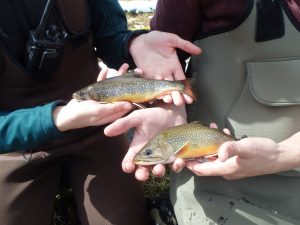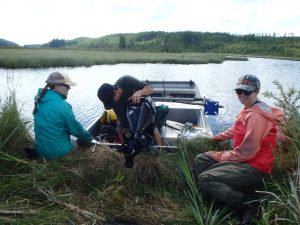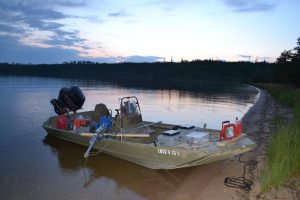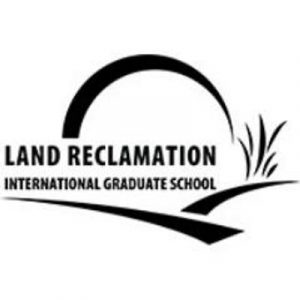Restoration and Reclamation
Research
Once species or their habitat have declined, restoration and reclamation is needed. One important component of restoration and reclamation is developing habitat offsets. Many countries have adopted habitat offsetting policies (e.g., Canada, United States, Europe, Australia, New Zealand, and United Kingdom), where the ideal goal is ecological equivalency, such that offsets are done in a manner which replaces habitats “like-for-like” in areas in close proximity to where those habitats were displaced. When ecological equivalency cannot be achieved with habitat offsets, such as when the extent, duration and intensity of the impacts are sufficiently broad in spatio-temporal scale (e.g. surface mining, Sun et al. 2017), offsetting currencies and flexibility may be needed. Research topics include: assessing the efficacy of fish stocking for restoration, developing methods to for offsetting fisheries productivity, advancing expertise and methodologies in hydroacoustics. Click on the photos, articles or news items to learn more about some of the research we are conducting on restoration and reclamation! Note: * Lab members.
Articles from the Lab

Schmid J., Simmons S., Lewis M., Poesch, M. S. and R. Pouria. (2026) Website visits can predict angler presence using machine learning. FACETS 11:1-10.

Tayebi A. T., Schmid J., Simmons S., Poesch M. S., Ramazi P. and M. Lewis. (2025) Website views as a proxy for angler pressure and effort: Insight from Bayesian networks. Canadian Journal of Fisheries and Aquatic Sciences.

Schmid J., Simmons S., Poesch M. S., Ramazi P. and M. Lewis. (2025) Analyzing fisher effort – Gender differences and the impact of Covid-19. Canadian Journal of Fisheries and Aquatic Sciences.

Theis, S.*, Shirton, J.*, Barbeau, M.*, Ruppert, J. W. L.* and M.S. Poesch (2025) Growth and diet of Northern Pike (Esox lucius) in Boreal lakes: Implications for Ecosystem Management. Hydrobiologia 4(1): 1.

Theis, S.*, Cartwright, L., Chreston, A., Coey, B., Graham, B., Little, D., Poesch, M. S., Portiss, R., Scott, R., Wallace, A., and J. L. W. Ruppert. (2025) Balancing sampling effort against costs for nearshore fish communities in Toronto waterfront, Lake Ontario. Fisheries Management and Ecology: 31(1): e12733.

Theis S.*, Chin, A. T.M., Wallace, A., Cartwright L., Fortin M.J., Poesch, M.S. and Ruppert, J.L.W. (2025) Complexity and spatial structuring of fish communities across urbanized watersheds and waterfronts. Urban Ecosystems 28: 1–18.

Miller, M., Stevens, C. and M. S. Poesch. (2025). Effectiveness of spawning substrate enhancement for adfluvial fish in a regulated sub-Arctic river. River Research and Applications 41(2): 412-425.

Pandit, S.*, Poesch, M. S., Kolasa, J., Pandit, L. K., Ruppert, J. L. W., and E. Enders (2024). Long-term evaluation of the impact of urbanization on native and non-native fish assemblages. Aquatic Invasions: 19(3): 345-360.

Theis S.*, Cartwright L., Chreston A., Coey B., Graham B., Little D., Poesch M.S., Portiss R., Wallace A. and J. L. W. Ruppert (2024). A multi-metric index for assessing two decades of community responses to broad scale shoreline enhancement and restoration along the Toronto waterfront. Aquatic Conservation: Marine and Freshwater Ecosystems 34: e24141.

Theis S.*, Cartwright L., Chreston A., Wallace A., Graham B., Coey B., Little D., Poesch M.S., Portiss R., and J. Ruppert (2024). Nearshore fish community changes along the Toronto Waterfront in accordance with management and restoration goals: Insights from two decades of monitoring. PLos One: 19(2): e0298333.

Theis S.* and M. S. Poesch. (2024). What makes a bank a bank? Differences and commonalities in credit calculation, application, and risks in mitigation banks targeting freshwater fish species and associated ecosystems. Environmental Management: 73(1): 199-212.

Theis, S.* and M. S. Poesch. (2024). Mitigation bank applications for freshwater systems: Control mechanisms, project complexity, and caveats. PLOS One 19(2): e-292702.

Serbu, J. A., St. Louis, V. L., Emmerton, C. A., Tank S., Criscitello, A., Silins, U., Bhatia, M., Cavaco, M., Christenson, C., Cooke, C., Drapeau, H., Enns, S. J., Flett, J., Holland, K., Lavelle-Whiffen, J., Ma, M., Muir, C., Poesch, M. S., and J. Shin. (2023). A comprehensive biogeochemical assessment of climate-threatened glacial river headwaters on the eastern slopes of the Canadian Rocky Mountains. JGR Biogeosciences 129: e2023JG007745.

Theis, S.*, Ruppert, J. L. W. and M. S. Poesch. (2023) Coarse woody habitat use by local fish species and structural integrity of enhancements over time in a shallow northern boreal lake assessed in a Bayesian modeling approach. Ecological Solutions and Evidence 4(2): e12200.

Pentyliuk, N., Schmidt, B., Poesch, M.S. and S. Green. (2022) Recreational angler reporting as a tool for tracking the distribution of invasive Prussian Carp (Carassius gibelio). Conservation Science and Practice 5(1): e12850.

Theis, S.* Castellanos D.A., Hamann A. and M.S. Poesch. (2022) Exploring the potential role of habitat banks in preserving freshwater biodiversity and imperiled species in the United States. Biological Conservation 273: 109700.

Theis, S.* Koops, M. and M.S. Poesch. (2022) A meta-analysis on the effectiveness of offsetting strategies for harm to freshwater fishes. Environmental Management 70(5): 793-807.

Theis S.*, and M.S. Poesch (2022) Assessing conservation and mitigation banking practices and associated gains and losses in the United States. Sustainability 14: 6652.

Ponton D.E., Ruelas-Inzunza J., Lavoie R., Lescord G.L., Johnston T.A., Graydon J.A., Reichert, M., Donadt C.*, Poesch M.S., Gunn, J.A., and M. Amyot. (2022) Mercury, selenium and arsenic concentrations in Canadian freshwater fish and a perspective on human consumption intake and risk. Journal of Hazardous Materials Advances 6: 100060.

Theis S.*, and M.S. Poesch (2022) Current capacity, bottlenecks, and future projections for offsetting habitat loss using mitigation and conservation banking in the United States. Journal for Nature Conservation 67:126159.

Edgar M.*, Hanington P., Lu R., Proctor H., Zurawell R., Kimmel N. and M.S. Poesch (2022) The First Documented Occurrence and Life History Characteristics of the Chinese Mystery Snail (Cipangopaludina chinensis, Mollusca: Viviparidae) in Alberta, Canada. BioInvasions Records 11(2): 449-460.

Theis, S.*, Ruppert, J.*, Shirton, J.* and M.S. Poesch (2022) Measuring beta diversity components and beneficial effects of coarse woody habitat introduction on invertebrate and macrophyte communities in a shallow northern boreal lake: implications for offsetting. Aquatic Ecology 56: 793-814.

Medinski, N.A.*, Maitland, B.M.*, Jardine, T.D., Drake, D.A.R. and M.S. Poesch (2022) A catastrophic coal mine spill in the Athabasca River watershed induces isotopic niche shifts in stream biota including an endangered rainbow trout ecotype. Canadian Journal for Fisheries and Aquatic Sciences 79(8): 1321-1334.

Roberts, K.N.*, Lund, T.*, Hayden, B. and M.S. Poesch (2022) Season and species influence stable isotope ratios between lethally and non-lethally sampled tissues in freshwater fish. Journal of Fish Biology 100 (1): 229-241.

Finn, K.*, Roberts, K.N.* and M.S. Poesch (2022) Cestode parasites are depleted in 15N relative to their fish hosts in northern Alberta, Canada. Fisheries Research 248: 106193..

Pereyra, P.E.R, Hallwas, G., Poesch, M.S. and R. Silvano (2021) ‘Taking fishers’ knowledge to the lab’: an interdisciplinary approach to understand fish trophic relationships in the Brazilian Amazon. Frontiers in Ecology and Evolution 9: 723026.

Castaneda, R.A., Ackerman, J.D., Chapman, L.J., Cooke, S.J., Cuddington, K., Dextrase, A., Jackson, D.A., Koops, M.A., Krkosek, M., Loftus, K., Mandrak, N.E., Martel, A.L., Molnar, P., Morris, T.J., Pitcher, T.E., Poesch, M.S., Power, M., Pratt, T.C., Reid, S.M., Rodriguez, M.A., Rosenfeld, J., Wilson, C., Zanatta, D.T. and D.A.R. Drake. (2021) Approaches and research needs for advancing the protection and recovery of imperilled freshwater fishes and mussels in Canada. Canadian Journal of Fisheries and Aquatic Sciences 78 (9): 1356-1370.

Baird, I., Silvano, R., Parlee, B., Poesch, M., Napolean, A., Lepine, M., Halwass, G., and B. MacLean. (2021) The Downstream Impacts of Hydropower Dams and Indigenous and Local Knowledge: Examples from the Peace-Athabasca, Mekong and Amazon River Basins. Environmental Management 67: 682-696.

Banting, A.*, Vinebrooke, R., Taylor, M., Carli, C. and M.S. Poesch. (2021) Impacts of a regionally-native predator on littoral macrobenthos in fishless mountain lakes: implications for assisted colonization. Conservation Science and Practice 3(2): e344.

Donadt, C.*, Cooke, C., Graydon, J. and M.S. Poesch. (2021) Biological factors moderate trace element accumulation in fish along an environmental concentration gradient. Environmental Toxicology and Chemistry 40(2): 422-434.

Donadt, C.*, Cooke, C., Graydon, J. and M.S. Poesch. (2021) Mercury bioaccumulation in stream fish from an agriculturally-dominated watershed. Chemosphere 262: 128059.

Theis, S.*, Ruppert, J.W.R*, Roberts, K.*, Koops, M., Minns, K. and M.S. Poesch. (2020) Compliance with and ecosystem function of biodiversity offsets in North American and European freshwaters. Conservation Biology 34(1) 41-53.

Ruppert, J.L.W.*, Hogg, J., and M.S. Poesch. (2018) Community assembly and the sustainability of habitat offsetting targets in the first compensation lake in the oil sands region in Alberta, Canada. Biological Conservation 219: 138-146.

Sun, C., Shotyk, W., Cuss, C., Donner, M., Fennel, M., Javed, M., Noernberg, T., Poesch, M.S., Pelletier, R., Sinnatamby, N.*, Siddique, T., and J. Martin. (2017) Characterisation of naphthenic acids and bitumen derived organics in natural water from the Athabasca Oil Sands Region, Canada. Environmental Science and Technology 51 (17): 9524-9532

Camaclang, A.E., Curtis, J.M.R., Poesch, M.S., and M.A. Koops. (2017) Modelling the impact of poaching on metapopulation viability for data-limited species. Canadian Journal of Fisheries and Aquatic Science 74: 894-906.

Christensen-Dalsgaard, K., Sinnatamby, R.N.*, and M.S. Poesch. (2014) Metrics for assessing fisheries productivity of oil sands compensation lakes under Canada’s new Fisheries Act. Oil Sands Research and Information Network, University of Alberta, School of Energy and the Environment, Edmonton, Alberta. OSRIN Report No. TR-X. 52 pp
News from the Lab

Schmid J., Simmons S., Lewis M., Poesch, M. S. and R. Pouria. (2026) Website visits can predict angler presence using machine learning. FACETS 11:1-10.

Tayebi A. T., Schmid J., Simmons S., Poesch M. S., Ramazi P. and M. Lewis. (2025) Website views as a proxy for angler pressure and effort: Insight from Bayesian networks. Canadian Journal of Fisheries and Aquatic Sciences.

Schmid J., Simmons S., Poesch M. S., Ramazi P. and M. Lewis. (2025) Analyzing fisher effort – Gender differences and the impact of Covid-19. Canadian Journal of Fisheries and Aquatic Sciences.




